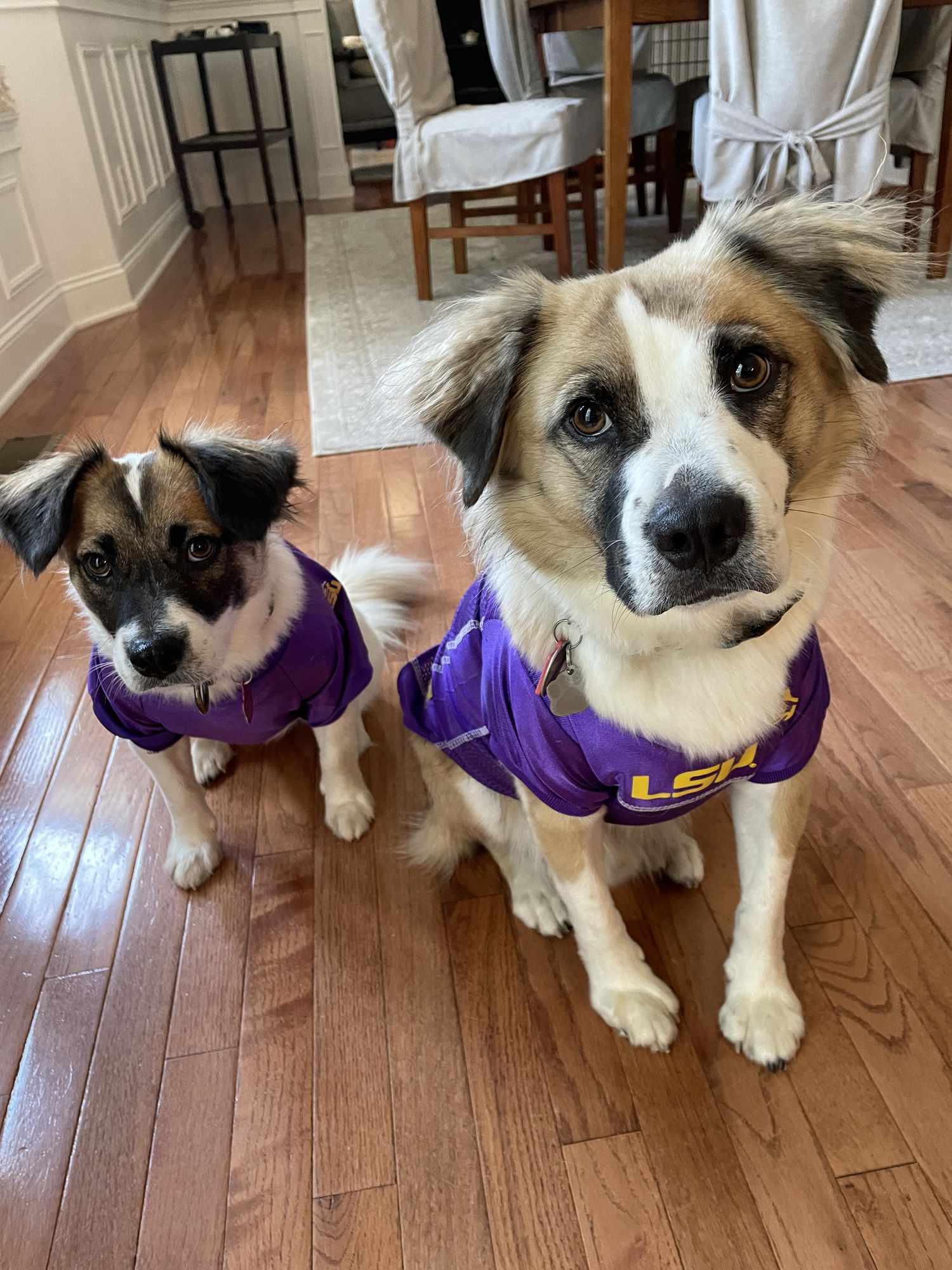- August 7, 2022
- No Comment
- 6 minutes read
DNA Test Reveals that Tenn. Dog Adopted for Pup Is Pet's Sister – PEOPLE

Kelli Bender is the Pets Editor for PEOPLE Digital and PEOPLE magazine. She has been with the PEOPLE brand for more than eight years, working as a writer/producer across PEOPLE's Lifestyle, Features, and Entertainment verticals before taking on her current role. Kelli is also an editor on PEOPLE's Stories to Make You Smile and serves as an editorial lead on PEOPLE's World's Cutest Rescue Dog Contest and Pet Product Awards. Before joining PEOPLE, Kelli helped AOL and Whalerock launch a pet lifestyle site called PawNation. She is a pet parent to a cat named Wallace, and her professional and personal devotion to animals has taken her to three dog weddings … so far.
We independently research, test, review, and recommend the best products—learn more about our process. If you buy something through our links, we may earn a commission.
A rescue dog looking for a caring companion didn’t just find a friend, but a family member, when his owners adopted a second canine.
After going years without a dog — since their last place wasn't pet-friendly — Jane Salazar and her husband eagerly adopted a young dog named Diego shortly after moving into their home in Red Bank, Tennessee, last year.
Unsure of what breeds made up Diego — a dog Salazar describes as both “fluffy” and “manly” — Salazar decided to indulge her curiosity and got an Embark dog DNA test for Diego.
“The test showed that he is mostly pitbull and Australian cattle dog,” Salazar tells PEOPLE.
But the test also revealed something more startling.
"He had two copies of premature retinal atrophy, and I knew that would mean he would go blind," Diego's owner recalls.
Salazar took Diego to a dog ophthalmologist, which she assures "is a real thing," to get the test's findings confirmed. The ophthalmologist confirmed Diego's premature retinal atrophy — a group of genetic diseases that cause progressive vision loss — and noted that the 1-year-old dog's vision had already started diminishing.
The ophthalmologist also suggested that Salazar and her husband get another dog that could be a supportive and familiar friend to Diego as the dog lost his vision.
Shortly after this appointment, Salazar revisited the rescue websites she looked at while searching for Diego and found a dog who looked extraordinarily similar to her current pet. She and her husband put in an application, and, not long after, Dixie joined their family and met Diego.
"I did that test a lot quicker," Salazar says of the Embark DNA test she got for Dixie.
After using the information from Diego's test to make life more healthy and comfortable for the canine, Salazar wanted to do the same for Dixie if needed.
Dixie’s test also came back with a surprise — the DNA results revealed that Dixie and Diego are related. Based on what Embark’s Relative Finder feature uncovered, Diego and Dixie are siblings. The dogs are not from the same litter but likely have the same mother and father.
"Immediately, they played well together. She holds her own, and they play beautifully together," Salazar says of the bond she saw between the pooches.
RELATED VIDEO: Dog Meets His Brother
Though, aside from their appearance, their DNA, and their love for sibling playtime, the two dogs couldn't be more different, according to their owner.
Salazar describes Dixie as an energetic, curious, terrier-like pup, while Diego is more aloof and timid. She adds that Dixie is doing a "really good" job being a sister to Diego and has already improved her brother's life.
After learning so much about her pets from DNA tests, Salazar says she hopes her experience encourages other pet owners to get DNA tests for their furry friends.
"It allows up to prepare health-wise," Salazar says of dog DNA testing. "For Diego, who knows how long it would've taken us to find out about his vision loss. Without the test, we might've just thought he was a weird dog that likes to sit and stare."
By clicking “Accept All Cookies”, you agree to the storing of cookies on your device to enhance site navigation, analyze site usage, and assist in our marketing efforts.

